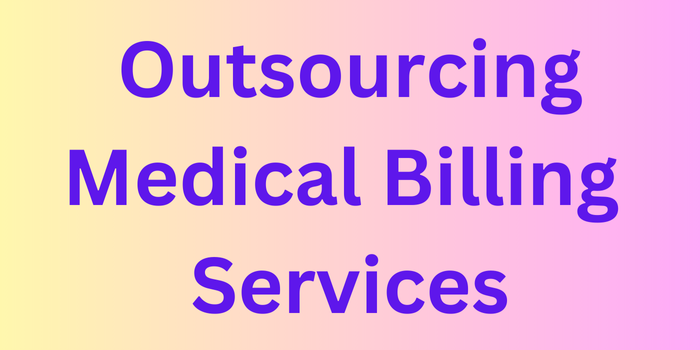Outsourcing Medical Billing Services: Pros, Cons, and Best Practices
With the healthcare industry constantly changing, medical billing has emerged as a crucial aspect of practice administration. Many healthcare providers are thinking about outsourcing their medical billing services in an effort to concentrate on patient care. This blog discusses the benefits and drawbacks of outsourcing medical billing and provides advice on how to make the move smoothly.
Understanding Medical Billing
To get paid for services given, medical billing is the process of filing claims to health insurance companies and then following up on them. It entails monitoring accounts receivable, filing claims, and categorizing diagnoses and procedures. Many healthcare providers are looking to outsourcing as a workable alternative because of its complexity.
Pros of Outsourcing Medical Billing
1. Cost Savings
There are big financial benefits to be had from outsourcing medical billing. Healthcare providers can cut expenses by using a third-party service instead of hiring, training, and keeping an internal billing staff. This makes it possible for practices to distribute resources more wisely.
2. Increased Efficiency
The billing process can operate more efficiently when it is outsourced. With their knowledge and technological prowess, specialized billing businesses can increase collections, decrease claim denials, and streamline operations. Faster payments and better cash flow for healthcare providers may result from this.
3. Access to Expertise
Medical billing firms have staff members with training who are knowledgeable about current codes and regulations. This knowledge can lower the possibility of audits and fines by ensuring adherence to industry standards and minimizing errors.
4. Focus on Patient Care
Healthcare providers can concentrate more on patient care rather than administrative duties by outsourcing billing. Given that doctors may now spend more time with patients, this change may result in higher patient satisfaction and better health outcomes.
Cons of Outsourcing Medical Billing
1. Loss of Control
The possible loss of control over the billing process is one of the main issues with outsourcing. There may be a sense of disconnection between healthcare professionals and their financial operations, raising questions about accountability and accuracy.
2. Communication Challenges
Communication problems between the billing firm and the healthcare provider may arise as a result of outsourcing. Cash flow can be impacted by miscommunication or delays in payment, which can result in billing errors or payment delays.
3. Data Security Risks
When medical billing is outsourced, private patient data must be shared with outside parties. Data security and adherence to laws like HIPAA are brought up by this. Providers are required to make certain that their billing partners have implemented strong security protocols.
4. Initial Transition Costs
There may be upfront expenses associated with switching to an outsourced billing provider, such as setup charges and training. Providers need to compare these expenses with the outsourcing’s long-term advantages.
Best Practices for Outsourcing Medical Billing
1. Choose the Right Partner
It’s important to choose a trustworthy billing business. Investigate possible partners by looking for references and examining their track record in the field. Seek out businesses that have expertise with practices of a comparable size and that specialize in your field of practice.
2. Establish Clear Communication
Establish transparent lines of communication with your billing partner. To make sure that everyone is on the same page regarding expectations, goals, and potential problems, regular updates and meetings might be helpful.
3. Monitor Performance
Regularly review the performance of your outsourced billing service. Track key metrics such as claim denial rates, days in accounts receivable, and overall collections. This data can help you assess the effectiveness of the partnership.
4. Ensure Compliance
Make that your billing partner complies with all applicable laws and industry standards. HIPAA and other privacy laws are among those that must be followed. Frequent audits might assist in making sure your billing procedures stay legal.
5. Maintain In-House Oversight
Even while outsourcing can reduce administrative work, some internal monitoring must still be maintained. To guarantee accuracy and responsibility, assign a staff member to supervise the billing process and communicate with the billing company.
Conclusion
There are several advantages to outsourcing medical billing services, such as lower costs, more productivity, and easier access to knowledge. But there are drawbacks as well that healthcare professionals need to be aware of. By adhering to best practices and selecting the appropriate partner, clinicians may effectively manage the outsourcing procedure and concentrate on their primary responsibility—providing high-quality patient care.
Read More:




